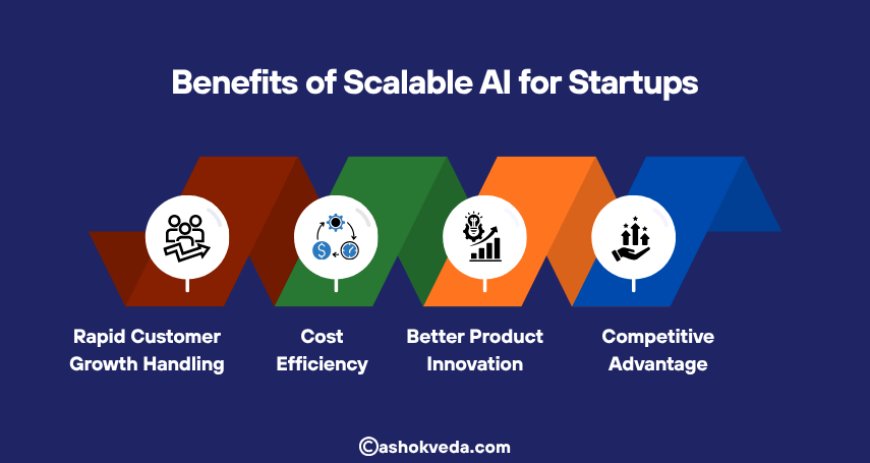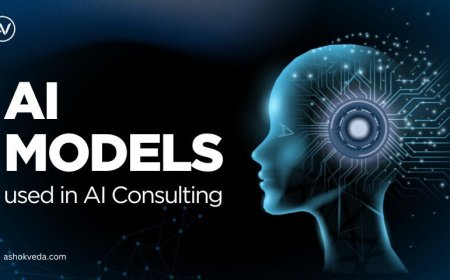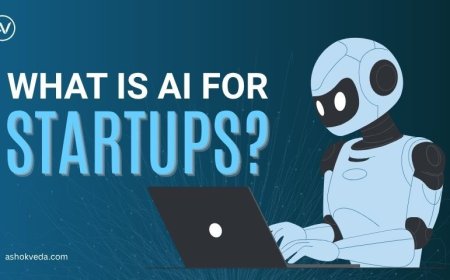How Scalable AI for Startups Drives Faster Business Growth
Explore the power of scalable AI for Startups, enabling faster growth, efficient operations, and long-term innovation with modular and cloud-based AI systems.

The advancement of artificial intelligence has transformed how new businesses operate, compete, and grow. For many founders, the biggest question is not whether to adopt AI, but how to ensure that AI solutions scale effectively as their operations expand. AI for Startups has quickly evolved from a trend into a foundational pillar that determines long-term competitiveness. As companies move from early-stage experimentation to large-scale deployment, scalability becomes the defining factor that separates sustainable ventures from those that struggle to keep up.
Understanding Scalability in AI Systems
Scalability refers to a system’s ability to maintain performance, reliability, and efficiency as workload or user demand increases. When discussing AI for Startups, scalability plays a critical role because AI models need to adapt to higher data volumes, more complex queries, and increased user interactions over time.
Two Major Aspects of Scalability:
-
Vertical Scalability: Improving the capacity of existing systems, for example, upgrading GPU power, storage, or memory.
-
Horizontal Scalability: Adding more machines, cloud instances, or distributed systems to handle growing demand.
Both types are essential to creating robust AI for Startups solutions that can evolve with business needs without causing performance bottlenecks.
Why Scalability Matters in AI for Startups
Scalable AI offers long-term advantages that directly impact business performance. Startups working with small budgets and limited resources can especially benefit from advanced planning.
Key Reasons Scalability Is Important
-
Supports business growth without requiring a complete system replacement.
-
Prevents system failures during peak user demand.
-
Optimizes operational costs, since resources are used efficiently.
-
Improves user experience through faster, more accurate AI responses.
-
Ensures long-term sustainability, especially in competitive markets.
Without scalable AI for Startups strategies, early success can turn into operational stress, making growth difficult to manage.
Core Components of Scalable AI for Startups
1. Scalable Data Pipelines
AI relies on data, and as a startup grows, so does the quantity and complexity of that data. Scalable pipelines ensure smooth ingestion, storage, and processing.
Important elements include:
-
Distributed storage systems
-
Real-time data streaming
-
Automated data cleaning
-
Version control for datasets
A strong data pipeline is the backbone of reliable AI for startup architectures.
2. Cloud Infrastructure
Cloud platforms like AWS, Azure, and Google Cloud are essential for scalability. They enable startups to expand resources instantly without large upfront investments.
Benefits of cloud-based AI for Startups' solutions:
-
On-demand computing
-
Cost-effective scaling
-
Global accessibility
-
Secure model deployment environments
This flexibility lets startups scale strategically instead of overspending early.
Modularity means breaking AI systems into smaller components that can be improved independently.
Modular AI offers:
-
Faster updates
-
Easier debugging
-
Plug-and-play upgrades
-
Smooth integration with other tools
This approach is vital for startups building layered AI for Startups applications such as chatbots, recommendation engines, or fraud detection systems.
4. Model Optimization and Efficiency
Efficient models are easier to scale. Techniques such as pruning, quantization, or knowledge distillation help AI systems run faster without losing accuracy.
These optimizations are especially important when implementing AI for Startups solutions that need real-time predictions.
5. Strong Monitoring and Maintenance Framework
Scalable AI requires constant monitoring. Drift detection, performance evaluation, and automated retraining systems keep the AI accurate over time.
Continuous monitoring ensures that AI for Startups tools remain aligned with changing customer behavior or market conditions.
Benefits of Scalable AI for Startups
1. Rapid Customer Growth Handling
When user numbers multiply, AI systems must respond instantly. Scalable AI ensures zero lag, consistent accuracy, and uninterrupted performance.
2. Cost Efficiency
Scaling in small, manageable increments keeps operational expenses under control. This makes AI for Startups a long-term investment rather than a financial burden.
3. Better Product Innovation
Scalability allows startups to introduce new features quickly using the same core AI infrastructure.
4. Competitive Advantage
Being able to handle more data, serve more users, and improve services continuously helps startups outperform traditional businesses and late adopters.

Challenges in Scaling AI for Startups
Despite its advantages, scaling AI is not always simple. Startups encounter several obstacles.
1. High Computational Costs
Training and deploying large models require expensive hardware. Without planning, the costs can rise rapidly, affecting the sustainability of AI for Startups projects.
2. Data Quality Issues
As datasets expand, inconsistencies and errors increase. Poor data affects AI performance and scalability.
3. Technical Skill Gaps
Scaling AI requires specialized knowledge in cloud engineering, MLOps, and distributed systems—skills that early-stage teams may lack.
4. Integration Challenges
Legacy systems or poorly designed early architectures may not support advanced, scalable AI for Startups solutions.
Best Practices for Building Scalable AI for Startups Solutions
1. Start Small, Then Scale Gradually
Rather than building the most advanced system immediately, begin with essential components and expand as demand grows.
2. Use Cloud-Native Tools
Cloud-native features such as Kubernetes, auto-scaling, and serverless computing simplify scalability.
3. Adopt an MLOps Culture
MLOps ensures automated deployment, testing, monitoring, and version control. This discipline is foundational for scalable AI for Startups workflows.
4. Design for Modularity from Day One
Every component—data ingestion, model training, deployment—should be loosely coupled for flexibility.
5. Implement Continuous Learning Systems
As users change their behavior, AI should adapt automatically. This allows AI for Startups solutions to remain relevant and accurate.
6. Prioritize Security and Compliance
As AI scales, data protection becomes more complex. Secure infrastructure builds long-term trust.
Real-World Examples of Scalable AI for Startups
Several startups have built success stories using scalable AI principles:
-
Fintech companies use scalable fraud detection models capable of processing millions of transactions.
-
E-commerce startups rely on recommendation engines that evolve with growing product catalogs.
-
Health-tech ventures scale diagnostic models to handle expanding patient data.
Each example highlights how strategic scalability drives the impact of AI for Startups solutions.
Scalable AI is not just a technical achievement—it is a strategic advantage that defines success in competitive markets. For startups, the journey begins with small, well-structured AI systems that grow with the business. By using cloud tools, modular architectures, strong data pipelines, and continuous monitoring, founders can build reliable and future-ready solutions. As technology evolves, AI for Startups will continue to empower new businesses to innovate faster, operate smarter, and scale globally. Startups that understand and invest in scalability today will be the industry leaders of tomorrow.





































